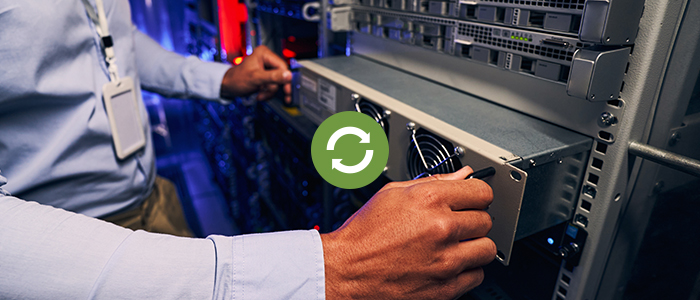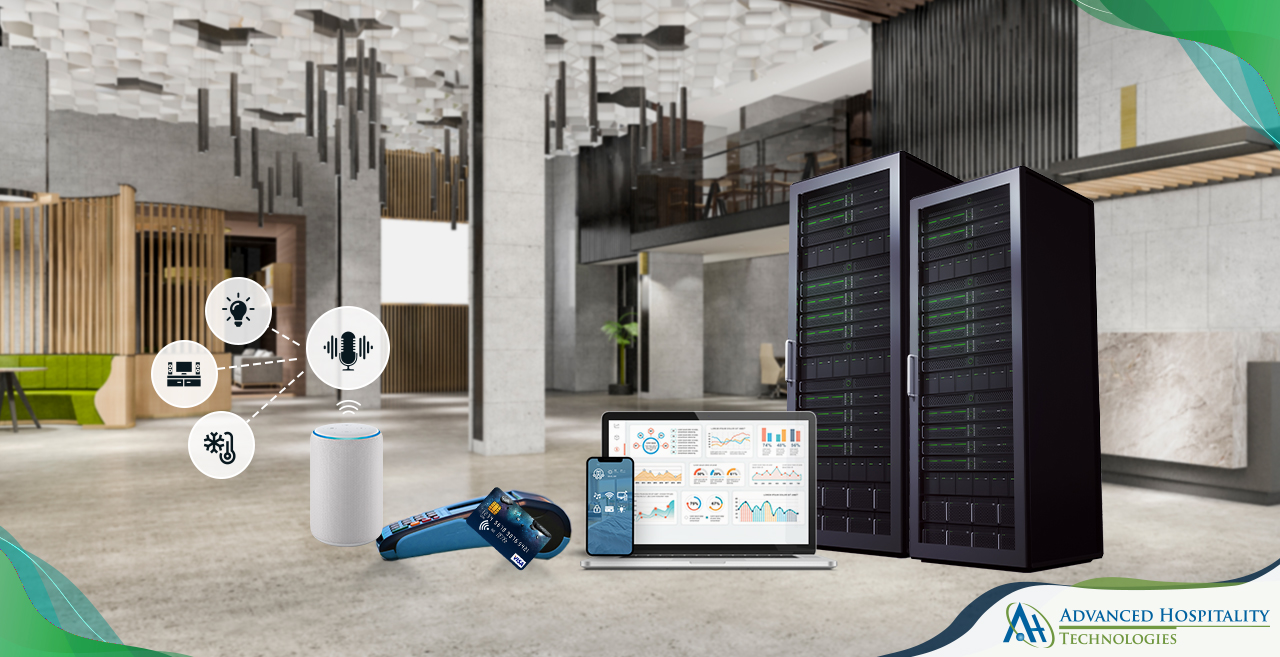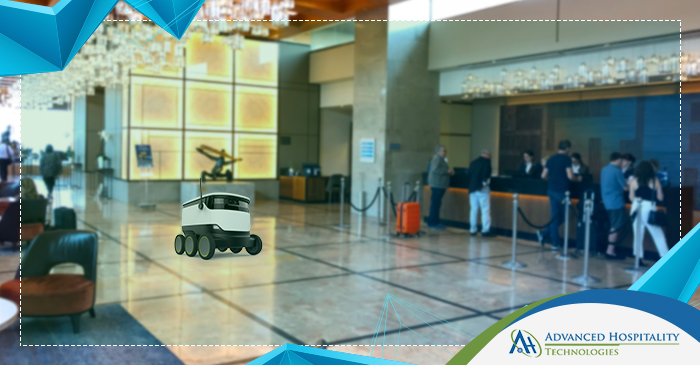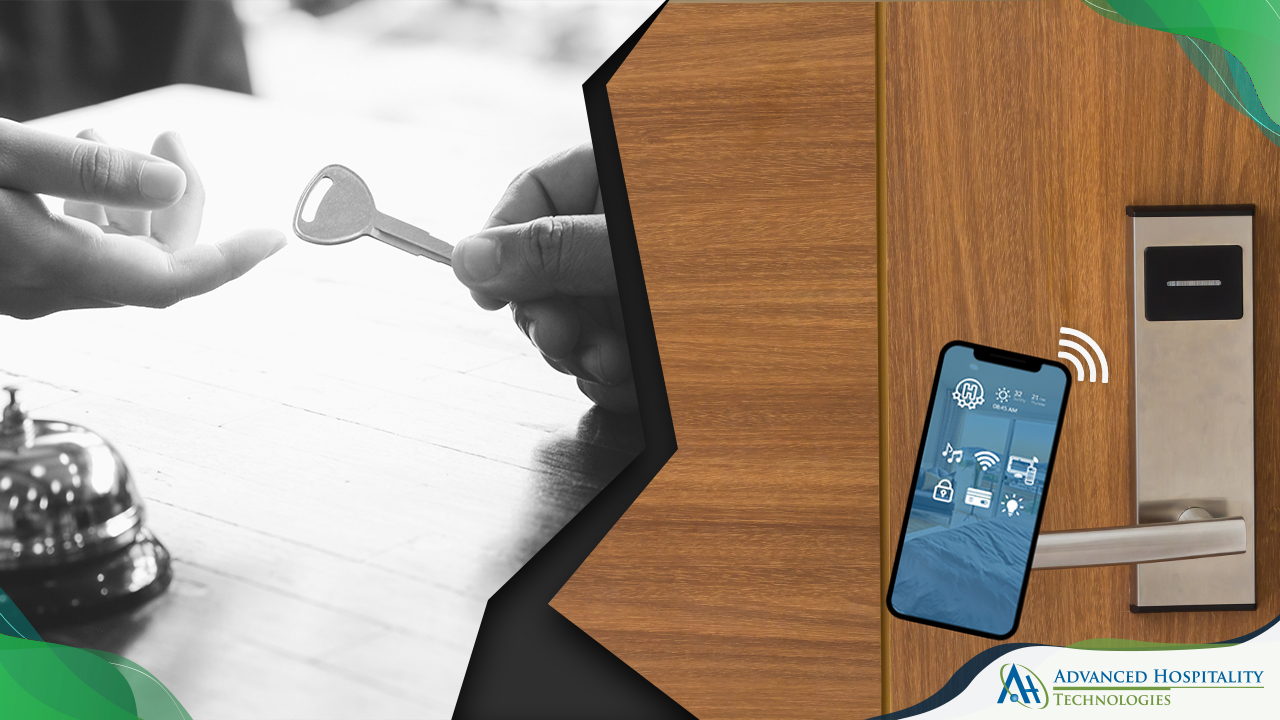Introduction
The hospitality industry runs on providing exceptional guest experiences. In today’s digital age, technology plays a crucial role in delivering efficient operations and high-quality service. However, most hotels don’t have dedicated IT departments. Managing technology can be a major pain point that distracts from core hospitality duties. This is where Managed IT services come into play.
For hotels looking to optimize business operations, outsourcing technology management to a managed IT services provider can be a game changer. Handing off IT tasks to external experts allows hotel staff to focus on hospitality while enabling access to enterprise-grade IT support. Managed services deliver specialized knowledge and 24/7 monitoring and maintenance that in-house staff can’t feasibly provide.
This article will explore how managed IT services address common technology challenges in the hotel industry. We’ll look at the key benefits of outsourcing IT for hotels, the services offered, what to look for in an IT provider, and signs it’s time to make the switch. With the right managed IT partner, hotels can transform technology from a burden into an asset for delighting guests.
Benefits of Managed IT Services for Hotels
Hotels of all sizes can benefit from partnering with a managed IT services provider. Here are some of the key advantages:
Reduce Costs
One of the biggest perks of managed IT is cost savings. Rather than maintaining an in-house IT team, you can outsource your IT support and management to specialists. This converts IT from a fixed to a variable cost, meaning you pay for only the services you need. A managed services provider (MSP) can monitor your systems 24/7, promote preventive maintenance to avoid downtime, and provide support on an on-demand basis. This is often much more affordable than hiring full-time IT staff.
Access Expertise
IT providers employ experienced IT professionals like systems administrators, cybersecurity experts, and network engineers. Working with an MSP gives you access to high-level technical skills your own staff may lack. The MSP can act as your IT department, handling everything from help desk support to complex network and infrastructure projects. Their depth of knowledge and resources can boost the sophistication of your hotel’s IT capabilities.
Improve Security
Partnering with an MSP can shore up your cyber defenses too. IT providers use advanced security software, threat monitoring tools, and protocols like firewalls and encryption to protect your systems and data from malware, hacking attempts, and other cyber threats. Their security experts continually monitor for vulnerabilities and keep your safeguards up to date. This gives you peace of mind that your network and sensitive guest information are secured.
Enhance Guest Experience
A high-performing, reliable IT environment enhances the guest experience by supporting your hotel operations and amenities. Managed IT services facilitate fast, secure connections for guest Wi-Fi. They keep your PMS, POS system, and other hospitality platforms optimized for performance. Quick resolution of technical issues improves service quality. Working with an MSP gives you the technology foundation to deliver excellent guest experiences.

Common IT Needs in Hotels
Today’s hotels rely heavily on technology to run their operations efficiently and provide the best guest experience. Some of the most common IT needs in hotels include:
Property Management Systems (PMS)
The PMS is the central hub that connects various hotel operations. It handles reservations, guest check-ins/outs, room assignments, housekeeping, billing, inventory management, and more. Having a robust yet user-friendly PMS is critical for hotels.
Guest Wi-Fi
Fast and reliable Wi-Fi is a must for hotels today. Guests expect to seamlessly connect their devices to surf the web, stream movies, and work remotely. Wi-Fi must be available across all public areas and rooms without any dead zones.
Payment Systems
Hotels require secure and PCI-compliant payment systems to process in-person and online transactions. This includes point-of-sale systems at check-in counters, restaurants/bars, gift shops, etc. as well as interfaces for online booking engines and websites.
Back Office Systems
Behind the scenes, hotels rely on back-office platforms for accounting, inventory management, payroll, scheduling, employee management and more. Interfaces allow data flow between back-office systems and core platforms like PMS.
Cybersecurity
With the vast amounts of sensitive guest data they handle, cybersecurity is a top concern. Firewalls, malware protection, access controls and network security monitoring are essential. Hotels must also prepare for emerging cyber risks as they adopt new in-room technologies.
Having robust technology across these critical systems allows hotels to deliver personalized, seamless experiences guests have come to expect. An IT strategy aligned to their specific operational needs is key for hotels today.
Challenges of In-House Hotel IT
Most hotels start off managing their own IT with limited in-house staff. While this may work initially, it often leads to major pain points down the road. Here are some of the top challenges hotels face with handling all their own IT:
High Costs
Employing expert IT staff is expensive, especially for smaller independent hotels. Between salaries, benefits, training, and other costs, an in-house IT team can easily cost over $100k annually. For that price, you usually just get 1-2 generalist staffers who can’t match the skills and experience of a fully managed IT services firm.
Lack of Expertise
It’s hard for a small in-house IT team to stay on top of everything from help desk support to compliance. Hotel IT environments are complex with PMS systems, PCI regulations, guest Wi-Fi, POS systems, and mobile/cloud solutions. A dedicated MSP focuses solely on hotel IT and has deep expertise you just can’t get internally.
Security Risks
Cyberattacks targeting the hospitality industry are rising. Ransomware and hacking threaten customer data, room lock systems, and other critical hotel infrastructure. An in-house team often lacks the time and advanced tools to properly secure devices, install patches, monitor the network, train staff, and prevent breaches.
Outdated Systems
With limited budgets and access to new technologies, legacy on-premises systems tend to linger at hotels. This leads to compatibility issues, missing integrations between systems, and an inability to support guest mobile needs. Managed IT services keep your stack modern with cloud-based management and regular technology refreshes.
Core Managed IT Services for Hotels
Managed IT providers offer a range of essential services to help hotels operate efficiently and protect critical systems and data. Core services commonly included in managed IT packages for hotels include:
24/7 Monitoring and Support
With round-the-clock monitoring and support from an expert team, hotels can rest assured their systems will be closely watched and issues addressed anytime they arise. This helps minimize downtime that can impact guest services and revenue.
Help Desk
Managed service providers have experienced IT help desk technicians who become an extension of the hotel’s support team. They provide remote and on-site assistance for anything from guest internet issues to server failures.
Data Backup
Backing up data is crucial to avoid loss in the event of hardware failure, cyber-attacks, and other incidents. Managed providers automatically back up hotel systems offsite so data can be restored quickly if needed.
Cybersecurity
From malware protection to firewalls and intrusion detection, managed IT services include layered cybersecurity controls to safeguard hotel systems and guest data. Providers handle security monitoring and response.
Compliance
Managers help hotels maintain compliance with data privacy and security regulations like PCI DSS for payment card data. They ensure systems meet laws like GDPR in Europe. Keeping current with changing compliance rules is handled by the provider.
With continuous expert support for these vital IT functions, hotels using managed services gain peace of mind knowing their property’s technology is secure, compliant, and resilient. The experienced team acts as an extension of hotel IT staff.

Specialized Hotel IT Services
Hotel IT needs often go beyond the basics, requiring specialized services and custom solutions. Managed IT providers can offer expertise in key areas like:
Guest Wi-Fi optimization
With Wi-Fi being a huge factor in guest satisfaction, hotels need robust Wi-Fi that can handle many simultaneous connections across the property. IT providers can analyze your infrastructure, troubleshoot weak spots, implement commercial-grade access points and controllers, and manage the network for optimal uptime and performance.
Payment systems integration
From credit card processing to mobile checkout, hotels rely on secure, reliable payment systems integrated with their property management system. IT experts can install payment hardware, connect it with your PMS software, ensure PCI compliance, and keep systems up to date.
Property management system support
The PMS is the central nervous system of a hotel. When it goes down, operations grind to a halt. IT technicians can install, configure, integrate, customize, and support your PMS and related software. They can also train staff and optimize systems.
Custom application development
Need a custom mobile check-in app, virtual concierge chatbot, or back-office dashboard? IT developers can build and deploy custom software tailored to your hotel’s unique needs. They can integrate new apps with your existing systems for a seamless experience.
Relying on managed IT services positions hotels to have optimized technical operations, increased guest satisfaction, and lower IT costs. The experts keep your infrastructure running smoothly 24/7 while handling specialized projects to take your property’s technology to the next level.
Assessing Your Hotel’s IT Needs
Before engaging a managed IT services provider, it’s important to conduct an assessment of your hotel’s current IT infrastructure, systems and processes. This will help you identify any gaps or pain points in your IT operations, so you can determine where a managed services partner can provide the most value. Here are some best practices for evaluating your hotel’s technology needs:
Audit Current Systems and Pain Points
- Review all existing software, hardware, networks, and systems across your hotel. Document details like age, capabilities, performance, integrations, and vendor contracts.
- Identify any technology gaps like missing software features, legacy systems, insufficient bandwidth, and hardware.
- Map out IT processes like guest Wi-Fi provisioning, point of sale procedures, payment systems and backend operations.
- Note pain points like slow networks, system downtime, manual processes, and support bottlenecks.
- Gather feedback from staff on day-to-day technology challenges and frustrations.
Identify Security and Compliance Gaps
- Assess cybersecurity practices, including firewalls, antivirus, encrypted data, password policies and employee training.
- Review compliance with standards like PCI DSS for payment card data and GDPR for customer personal data.
- Check for vulnerabilities from outdated software, unpatched devices, and insufficient access controls.
- Document any recent security incidents like malware, hacking attempts or data breaches.
Map Out IT Roadmap and Priorities
- Outline long-term IT goals aligned to your hotel’s business objectives.
- Prioritize needs like improving guest Wi-Fi, upgrading reservation system, moving to the cloud.
- Detail required IT projects like network enhancement, software rollouts, and digital transformation initiatives.
- Estimate IT budgets and resources required to achieve roadmap.
Conducting a thorough IT assessment establishes a baseline understanding of your infrastructure, systems, and needs. This allows you to strategically engage a managed services provider to address specific gaps, automate tasks and improve IT operations.
Questions to Ask Potential IT Providers
When evaluating potential managed IT providers for your hotel, you’ll want to ask questions to assess their experience, services, capabilities, and costs. Here are some key questions to ask:
- What experience do you have working with hotels and hospitality businesses? Look for providers with extensive experience handling IT for hotels, resorts, casinos, and other hospitality organizations. They’ll understand the technology needs and challenges unique to your industry.
- What specific services and solutions do you offer hotels? Make sure the provider offers the essential managed IT services hotels require. This includes 24/7 monitoring and management of networks, servers, computers, Wi-Fi, phones, point-of-sale systems, property management systems and more. Industry-specific solutions like guest room technology integration and digital signage are a plus.
- What are your security capabilities and credentials? Hotel networks handle sensitive data and require robust cybersecurity. Ask about advanced threat protection, network/firewall monitoring, data encryption, backup, and disaster recovery services. PCI compliance and SOC audits validate security rigor.
- What is your average response time for IT issues? The provider should guarantee a fast response, with emergency issues addressed in under an hour. Slow service risks revenue-impacting system downtime.
- How are your services priced? Look for simple, predictable pricing like flat-rate monthly fees. Avoid complex pricing with multiple tiers and addons. The fees should correlate clearly with the level of service provided.
Asking these key questions will help you identify the right managed IT partner to meet your hotel’s specific technology needs and deliver maximum value.
Signs It’s Time to Switch to Managed IT
Hotel IT networks are complex environments that require constant monitoring and maintenance to operate efficiently. Over time, relying on limited internal IT staff can lead to a gradual decline in performance and increasing risks. Here are some signs it may be time for your hotel to switch to managed IT services:
- Frequent network downtime. Does your hotel seem to suffer from regular internet or systems outages that disrupt operations? Frequent downtime is a clue you need more advanced IT expertise to get to the root cause. Managed IT providers continuously monitor network health to prevent problems.
- Outdated systems. Is your hotel still relying on servers, software or hardware that is years out of date? Lagging behind on updates leaves you vulnerable to failures. Managed services proactively plan upgrades and system refreshes.
- Data breaches. Has your hotel experienced a malware attack, data breach or hack that compromised customer information? If your IT systems have been breached, it’s a clear sign you need to bring in third-party security and compliance experts.
- Lack of innovation. Does your hotel feel like it’s falling behind peers when it comes to new technology capabilities and guest-facing solutions? Managed services firms stay on top of innovations and new platforms to improve the guest experience.
- High IT costs. When you factor in salaries, operational expenses, downtime losses and more, is your hotel spending far more than it should on IT? Managed services provide better IT capabilities at a fraction of the cost of in-house IT staffing.
If your hotel is experiencing any of these issues, it’s time to take the next step and switch to managed IT services. Partnering with an experienced provider will get your technology back on track and enable innovation to better serve guests.
Conclusion
Managed IT services offer many valuable benefits for hotels looking to optimize operations. By partnering with an experienced IT services provider, hotels can improve efficiency, enhance security, reduce costs, and free up staff to focus on core business priorities. Some of the key benefits covered in this article include:
- Access to enterprise-level technologies and expertise without the overhead of hiring more in-house IT staff
- Proactive monitoring and maintenance to minimize downtime and keep systems running smoothly
- Enhanced security measures like firewalls, encryption, and threat monitoring
- Cost savings from predictable monthly fees versus large capital IT expenditures
- Ability to focus internal staff on improving the guest experience instead of troubleshooting IT issues
If you feel your hotel’s IT systems are outdated, vulnerable, or lacking capabilities, it may be time to consider managed IT services. The expert technicians at leading providers are equipped to handle your unique infrastructure and technology needs. They can assess your current setup, identify opportunities to improve operations, and deliver reliable ongoing IT support.
To determine if managed services are right for your hotel, evaluate factors like your pain points with IT, growth plans, onsite vs. remote staff, and budget. Reach out to providers in your area to request quotes and ask questions to gauge their experience in the hospitality industry. With the right partner, you can optimize your IT operations, achieve your business goals, and deliver standout guest experiences.

Kazim Raza Ahmed is Research Analyst and Content Strategist at Advanced Hospitality Technologies, A pioneering IT Solutions partner in the hospitality industry. Being a content creator Kazim is dedicated to publishing material keeping pace with the rapid technological developments in the hospitality industry.




